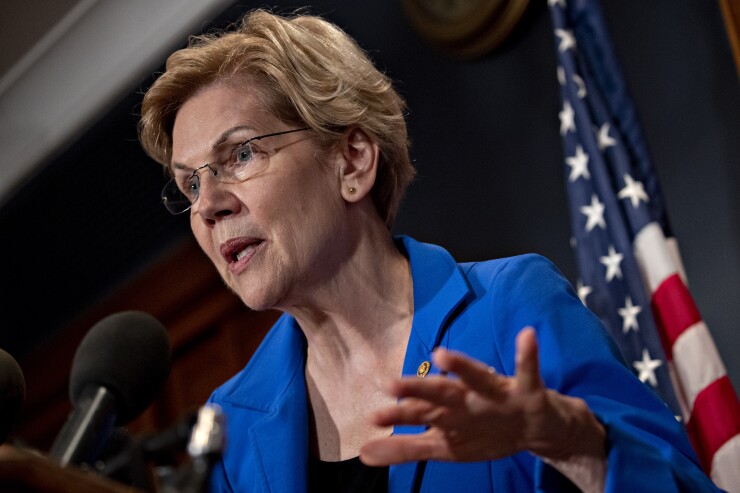WASHINGTON — A group of House and Senate Democrats have introduced a bill that would require the Federal Reserve to create a real-time payments system.
The Payments Modernization Act, introduced in the Senate by Sen. Chris Van Hollen, D-Md., said the central bank has been moving too slowly to determine whether to develop its own payments system, so the bill would make that decision for them.
“I’ve pushed the Federal Reserve to develop a system that has the necessary guardrails, but progress there has been too slow,” Van Hollen said.

Sen. Elizabeth Warren, D-Mass., who co-sponsored the Senate bill, said the purpose of the legislation is to ensure more people — particularly low-income Americans — have access to their money when they need it.
“Our bill would create a national, real-time payments system so that families have faster access to the money they earned and don’t have to pay overdraft fees or rely on a shady payday lender to make ends meet,” Warren said.
The bill would update the Expedited Funds Availability Act of 1987 to “require financial institutions to recognize funds in real time,” according to an accompanying fact sheet. The bill also clarifies the Fed’s authority to build a real-time payments system and mandates that the central bank implement such a system to compete with private payment systems.
Companion legislation was introduced in the House by Reps. Ayanna Pressley, D-Mass., and Jesús “Chuy” García, D-Ill.
Faster payments have become a hot topic in recent weeks. A bipartisan group of Senators Monday
That letter comes on the heels of Warren’s publication of a
The Federal Reserve has been designated as the regulator of U.S. payments and since the early part of the 20th century has operated its own Automated Clearing House, or ACH, network for clearing checks and other payments — a network that competes with a private ACH network operated by The Clearing House Association.
But The Clearing House Association developed and launched a faster payments system in 2017 known as Real Time Payments, or RTP. Some
Others have





